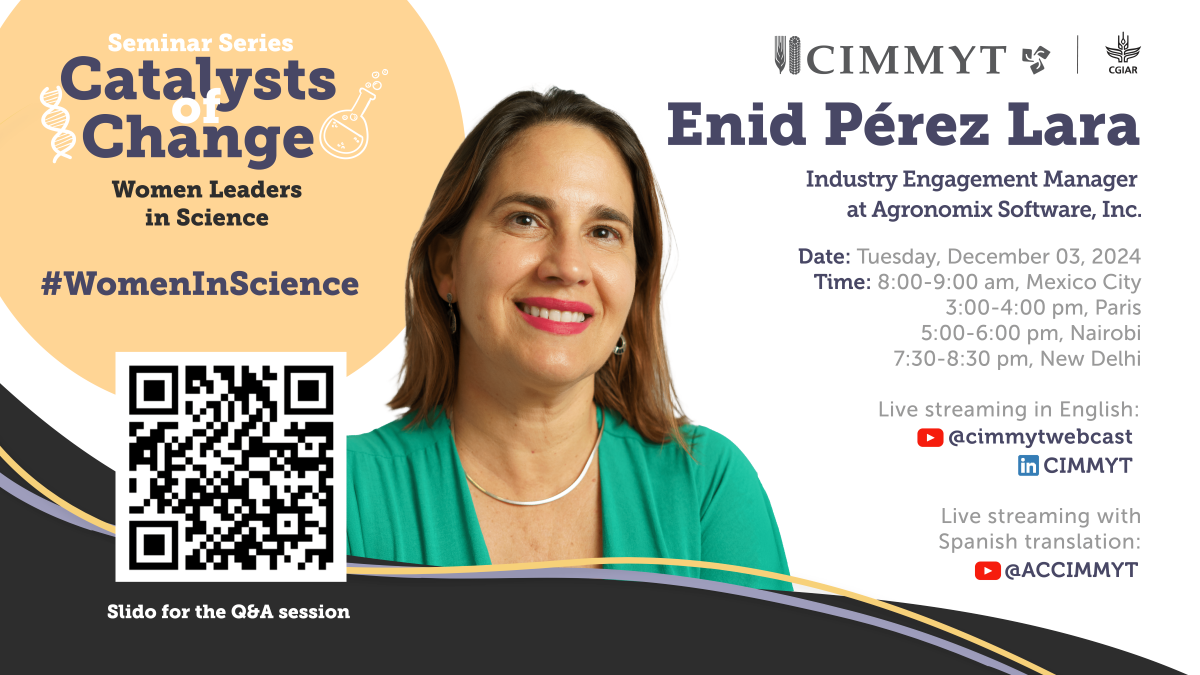 Background
Background
Experts have indicated that having role models is critical for aspiring leaders, and these role models can differ from person to person. Role models represent and expand what is possible, and they demonstrate the mindsets and behaviors on how to grow. In our science organizations, there are currently limited women role models available. This is part of the vicious circle we seek to break. Through this series of seminars, we will make more role models and different leadership styles visible.
About the series
CIMMYT is launching a ‘TED Talk meets fireside chat’-style series on women leaders. We are doing this because, as Marion Wright Edelman said, “You can’t be what you can’t see.” If we want more women leaders in science institutions like ours, we need to provide more opportunities to hear from women leaders about their life journeys, their lessons, and their insights. We seek to highlight women who are leaders in all sorts of capacities and in all sorts of fields and disciplines, because we believe that leadership styles can take many different forms. We aim to hold two seminars per month, starting on July 2023.
Visit the Catalyst of Change page to watch past sessions from this series.
Join us for the next Catalysts of Change seminar on Tuesday, December 03, 2024
8 – 9 a.m. Mexico City; 4 – 5 p.m. Paris; 5 – 6 p.m. Nairobi; 7:30 – 8:30 p.m. New Delhi
The seminar will be in English with interpretation in Spanish. Tune-in through LinkedIn livestreams the day of the event.

| También disponible en español |
